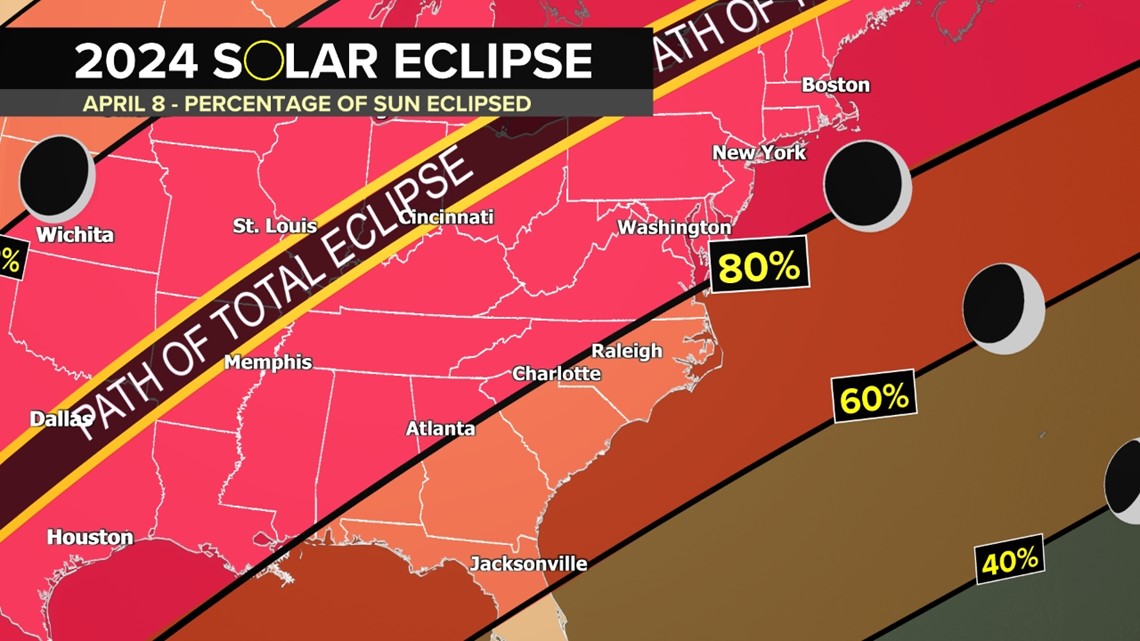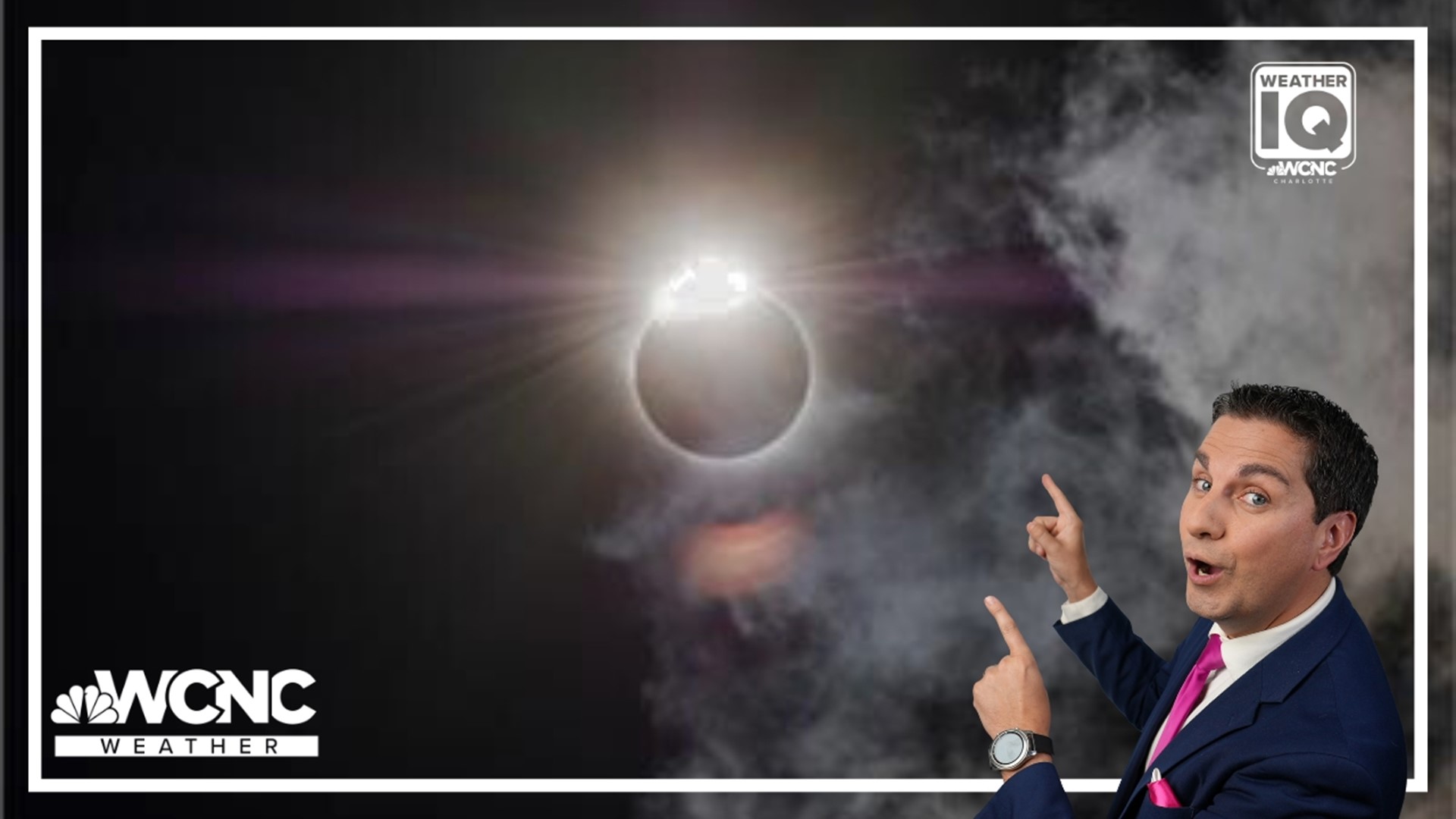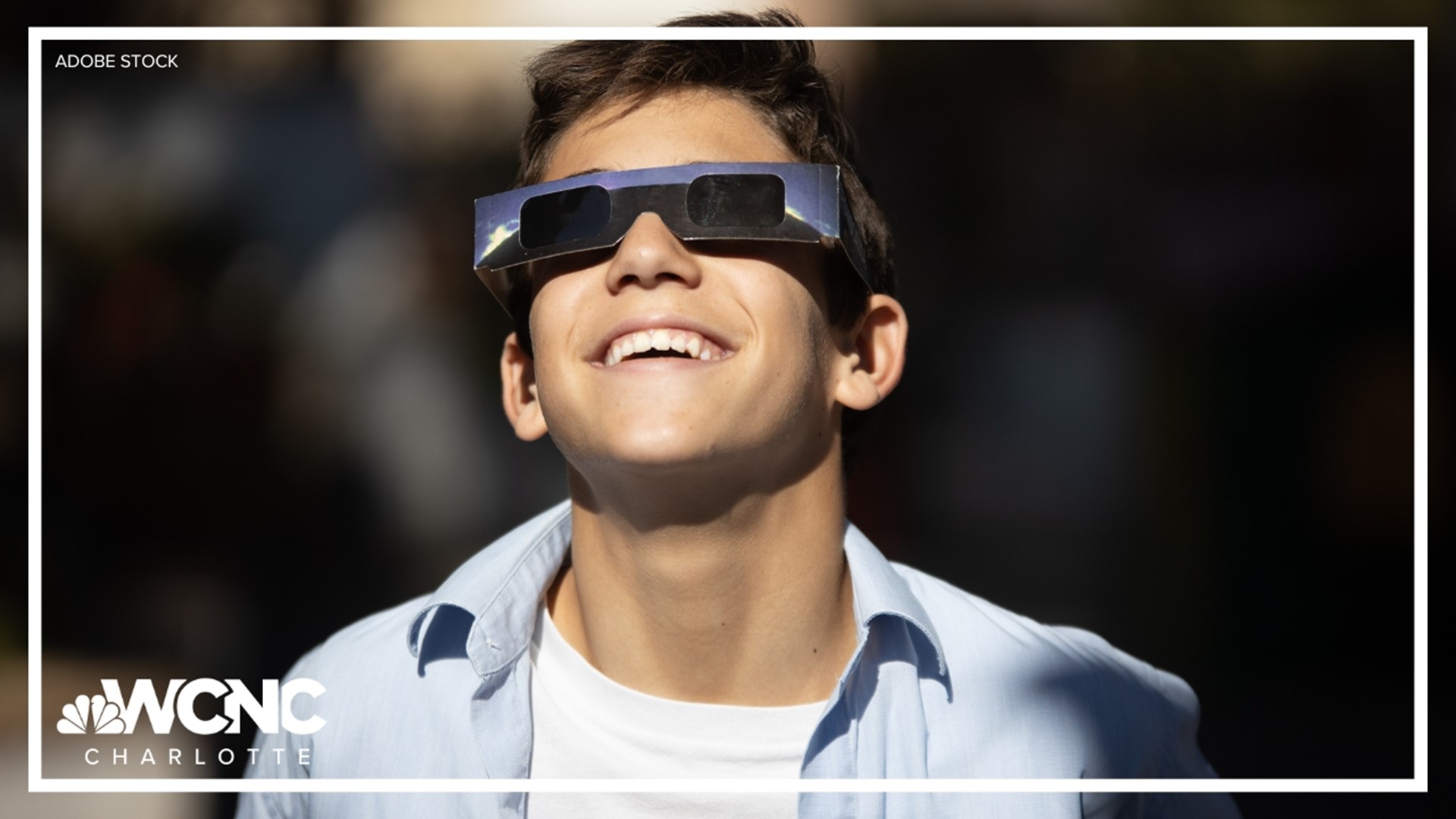CHARLOTTE, N.C. — The next total solar eclipse in the United States will be on April 8, 2024. The path of totality will start in Mexico and span into Texas up through the Midwest and exit through northern New York and New England. Thirteen states will be within the path of totality (where the total solar eclipse can be seen).
The eclipse will exit continental North America on the Atlantic coast of Newfoundland, Canada, at 5:16 p.m. NDT. Areas in the path of totality will have the sun completely blocked by the moon, making the sun's corona (atmosphere around the sun) visible.
The path will roughly be 100 miles wide but most of the United States will see at least a partial solar eclipse. This video below shows the detailed path of totality and if you or your friends and family will be in line for this must see show.
What will Charlotte, North Carolina see?
Charlotte will see an 80-83% partial eclipse resulting in what looks like a giant bite has been taken out of the sun. If you were around for the last total eclipse back in 2017, the show won't be as impressive for the Carolinas as it was then. A large portion of South Carolina was directly in the path of totality seven years ago. At that time, Charlotte, North Carolina and Mecklenburg County had between a 97 and 98% partial solar eclipse.
Timing?
- Charlotte's partial solar eclipse will start around 1:54 p.m. ET
- The peak (where the sun is most covered by the moon) will be around 3:11 p.m. ET
- The show will be over in Charlotte after 4:26 p.m. ET


Answers to the most asked Carolinas eclipse questions
Will it get darker in the Carolinas during the eclipse?
There will not be a noticeable change in the appearance of daylight. Back in 2017, when Charlotte was 98% eclipse, you could tell the difference. It will not get anywhere as dark this year. Even with most of the sun covered, enough of the sunlight will continue to shine through.
When will the Charlotte area have a total solar eclipse?
Not until May 2078 will Charlotte be directly in the path of totality.
How often does Charlotte see a partial solar eclipse?
A solar eclipse happens once or twice a year globally. The United States averages one partial solar eclipse every two-through-six years. Charlotte averages a similar interval. The last partial eclipse was in October 2023 but it was too cloudy for most to see the eclipse. There were also partial eclipses in 2021, when the eclipse covered less than 20% of the sun, and 2017, which was near totality. The next partial solar eclipses in Charlotte are 2029 and 2031 but both will be less than 30% eclipsed).
When viewing an eclipse…
You need special glasses for the best safety. Sunglasses do not provide adquete safety. Never look directly at the sun at any time. There are also other devices you can build that NASA has instructions for if you don’t want to look at it directly.
Editor's Note: The viewing times in this story were updated to correct an earlier error
Contact Chris Mulcahy at cmulcahy@wcnc.com and follow him on Facebook, X, Instagram and TikTok.
WCNC Charlotte’s Weather IQ YouTube channel gives detailed explainers from the WCNC Charlotte weather meteorologists to help you learn and understand weather, climate and science. Watch previous stories where you can raise your Weather IQ in the YouTube playlist below and subscribe to get updated when new videos are uploaded.


